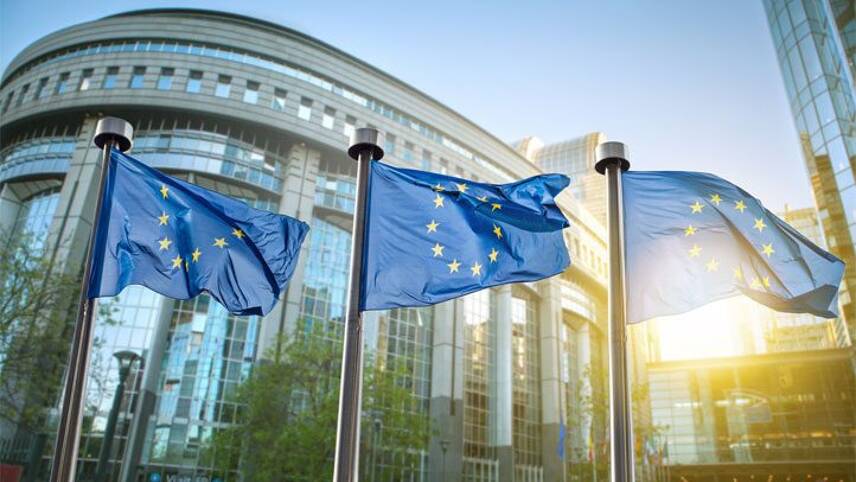Register for free and continue reading
Join our growing army of changemakers and get unlimited access to our premium content

The bloc has also agreed new climate finance measures this week
The conclusions passed by the EU’s 27 environment ministers highlighted the urgent need to tackle the climate crisis, saying global warming “is a direct and existential threat to humanity and biodiversity that spares no country”.
Alongside this, ministers agreed to support a proposal that all countries increase their national climate goals every five years – rather than every 10 – in light of the latest science.
This would provide more regular opportunities to increase climate targets under the Paris Agreement in line with climate science and public concern, according to Romain Laugier from the WWF European Policy Office.
“The EU took a decisive step in support of stronger international climate governance,” he told EURACTIV.
“Crucially, it will give negotiators more than two chances to solve the climate emergency and put the world on track to achieving climate neutrality within a timeline consistent with a 1.5°C pathway,” he added.
But he warned the position to support five-year common time frames is not as ambitious as it could have been.
According to a compromise, the five-year cycle was agreed “from 2031 onwards” and “only in the case all parties would be required to do so” as well. The wording was aimed at winning support from countries like Poland and Bulgaria, which favoured a 10-year timeframe instead.
Andrej Vizjak, the Slovenian Minister of the Environment and Spatial Planning, was the chairman of the meeting. He told journalists after the gathering that Europe was not committed to the five-year timeframe unless other countries follow suit.
Campaigners say this weakens the EU’s stance at COP26, and comes as an uneasy reminder of the failed Copenhagen climate summit in 2009, where Europe only committed to increase its climate ambition if other countries did the same.
Call for ambition
Environment ministers also called on all Paris Agreement signatories to come forward with more ambitious nationally determined contributions (NDCs) – their plans to cut greenhouse gas emissions – at the Glasgow summit.
Current targets submitted under the Paris Agreement are not enough to limit global warming to 1.5C by mid-century and there is growing concern that the world could overshoot its targets, leading to catastrophic global warming.
“The world is currently not on course to keep global warming below 1.5 degrees,” said Vizjak, the Slovenian minister who chaired the EU meeting.
“Many more collective efforts are needed to keep our planet’s temperature within safe limits,” he said.
Completing the Paris Rulebook
Ministers also agreed on Europe’s position when it comes to completing the Paris Rulebook – a set of rules spelling out how countries can reach the goals of the Paris Agreement.
Negotiations are still ongoing around Article 6, which provides guidance on international carbon markets and the trading of emissions reductions between signatories.
EU ministers agreed on carbon accounting rules as well as a mechanism allowing countries to cooperate on emissions reductions. This is needed to ensure voluntary carbon markets are aligned with global ambition as well as avoiding issues like double counting, the ministers said.
“It is good to see that the EU will continue to be a positive force in promoting environmental integrity in international carbon market negotiations, but it needs to do more,” said Gilles Dufrasne from Carbon Market Watch, an environmental NGO.
“Carbon markets don’t contribute significantly to climate action unless they move past the idea of compensation and offsetting. Markets must deliver real reductions and real benefits for the climate,” he told EURACTIV.
Dufrasne also expressed disappointment that human rights were not mentioned in the ministerial conclusions, saying global carbon markets rules should avert any adverse impact on people.
Climate finance
Environment ministers also confirmed their commitment to international climate finance. The announcement followed an agreement by finance ministers on Tuesday (5 October), which reiterated the EU’s commitment to scale up contributions to international climate finance from public and private sources.
Ministers called on developed countries to increase their contribution to a 2020 goal of reaching $100bn of climate finance as “a matter of urgency”. According to estimates, this target will be missed by around $20bn.
“The EU and its member states are the world’s leading contributors of climate finance” and have doubled their contribution since 2013, the ministers said.
Last month, EU Commission President Ursula von der Leyen announced that the EU will put an additional $4bn on the table until 2027, on top of the $25bn already provided by the EU and its member states on an annual basis.
Kira Taylor, EurActiv.com
This article first appeared on EurActiv.com, an edie content partner


Please login or Register to leave a comment.